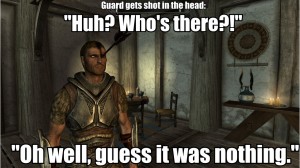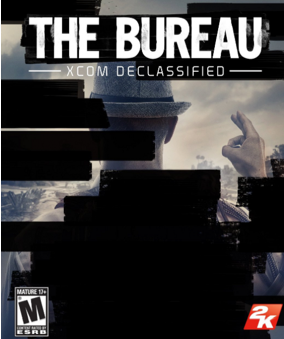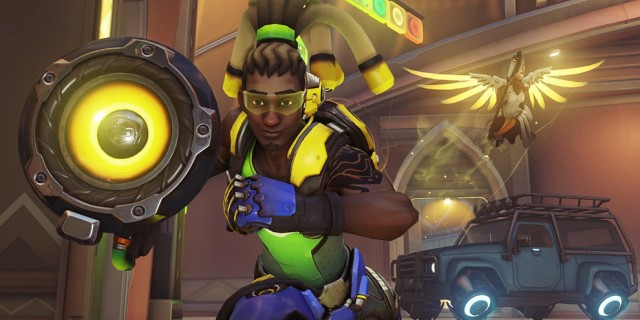The term “serious games” is problematic. We play for fun and enjoyment, yes, but the idea behind serious games is that they are somehow more impactful…more real…than other games. But these games also try to fill a void that is lacking in the world of AAA titles and platformers.
Serious games are games that tackle difficult problems, “gamifying” them in order to bring awareness with an interactive edge. But a lot of the narratives in these games are difficult (if not impossible) to build into mechanics. For that reason, a lot of these games tend to follow the choose-your-own-adventure model, walking the line between game and interactive fiction.
Games like Zoe Quinn’s Depression Quest and Christine Love’s Analogue: A Hate Story and Hate Plus are amazing visual novels. Quinn’s Depression Quest puts you in the shoes of someone struggling with severe depression. Each screen moves you through moments in your day, offering you choices on how to respond to responsibilities and problems. On every page, however, some objects are there but simply unavailable. You can see the “right” path. You (as player and character) know the fastest way out of your slump…but you can’t choose it. The game has multiple endings, some better than others, but none offer fairy tale happiness. It is raw and real.
Love’s Hate Story series, on the other hand, comes a bit closer to being a traditional game. You play as a futuristic archeologist (of sorts), sent to investigate a found space ship to figure out what happened to it and why it was abandoned. Due to technical difficulties, you can’t board and you are forced to conduct your search electronically with the help of the ship’s two AI personalities. There is more freedom for the player and there are a few choices that change the game play (not just the endings), but in the end it is largely a “game” of reading. This is not necessarily a negative–for gamers like me, the narrative is often the main draw–but it does raise an interesting question. What is a game?
Are pieces like September 12 or (TW for rape) The Day the Laughter Stopped games? They are thought-provoking, powerful, and narratively engaging (even if September 12 has no written text for game itself). But they aren’t fun and, perhaps the most important, there is no real replay value.
 As gamers, we know that games aren’t always fun. There are games that make us want to tear our hair out, throw controllers, and storm off in a ragequit. There are heartbreaking moments where the narrative makes us cry–or at least spend hours and hours fruitlessly trying to bring Aeris back to life. “Fun” is more the after-effect, tied in with satisfaction for a job well-done, success against challenges, and decent-enough controls and feedback that you don’t give up in annoyance along the way. And that’s where I struggle with the idea of serious games. They are trying to do something vitally important (something I’ve argued for in previous posts), but there isn’t really a challenge to overcome. In many ways, your path is set.
As gamers, we know that games aren’t always fun. There are games that make us want to tear our hair out, throw controllers, and storm off in a ragequit. There are heartbreaking moments where the narrative makes us cry–or at least spend hours and hours fruitlessly trying to bring Aeris back to life. “Fun” is more the after-effect, tied in with satisfaction for a job well-done, success against challenges, and decent-enough controls and feedback that you don’t give up in annoyance along the way. And that’s where I struggle with the idea of serious games. They are trying to do something vitally important (something I’ve argued for in previous posts), but there isn’t really a challenge to overcome. In many ways, your path is set.
The result (for me, at least) is something with little-to-no replay value. For me, games like FFVII and the Xenosaga series are infinitely replayable. The story, the mini-games, the grind…they are all worth revisiting. Some things stay the same, but there is enough complexity to make each game something new–its own experience. Serious games, however, stick in my mind. They are memorable. But I only ever go back to them if I’m sharing with a class or using them as an example. In fact, many times it feels like there is no real point in playing a serious game once you figure out the message it is trying to convey. No matter how beautifully written or constructed, these are often one-shot experiences, constrained by lack of budgets and a severely narrowed focus.
 So what do we do? I desperately want to see more diversity in the stories we tell through games. Series like Squaresoft’s Final Fantasy and Bethesda’s Elder Scrolls deal with some incredibly serious topics, but unless it involves fighting (or, sometimes, sneaking), “serious” issues are really only dealt with in the narrative. The game mechanics aren’t really effected by the topic at hand.
So what do we do? I desperately want to see more diversity in the stories we tell through games. Series like Squaresoft’s Final Fantasy and Bethesda’s Elder Scrolls deal with some incredibly serious topics, but unless it involves fighting (or, sometimes, sneaking), “serious” issues are really only dealt with in the narrative. The game mechanics aren’t really effected by the topic at hand.
But even if AAA games haven’t quite stepped up to the challenge yet…they’re getting closer, and plenty of smaller games are already tackling this beautifully. Papo & Yo is a tragically beautiful look at children of alcoholics. To the Moon struggles to explore the pain and love we deal with when someone dies. Spec Ops: The Line and Alice not only talk about PTSD, but show it through the limitations of the main character. It’s the same thought as minimizing the gender gap–its not enough to pepper the landscape with female bodies. They have to be real. They need strengths and flaws and backstories and identities, and those identities have to matter.
It’s a challenge. It means telling stories in ways we haven’t before, and that can be technically difficult. As a teacher, programmer, and web-designer, I know the joy (and importance) of strategic borrowing. We don’t want to reinvent the wheel…we want to build on what came before. Adding new narratives and player characters means stepping away from that template and trying new things that may or may not succeed at first–but its an important step, because games can humanize issues in a way that novels will always fall short. They are interactive. By playing, you put yourself in control of the situation (however illusory that control is). If you play as someone who is physically disabled, a rape victim, an alcoholic, a survivor of trauma, a civilian in a war zone, you become them for a little while. And games–excellent games–make those things both more and less than a label. Because it’s not enough to know that rape happens and its bad. We have to understand that the people behind these issues are just that…people. Flawed and ugly and strong and beautiful people. That I will replay.





14 thoughts on “Why So Serious?”
Thank you for your post, I think you draw out some of the problems of the idea of “serious games” very well. I am curious, though, if replay value might be over-weighted in your analysis. Why is it that this particular value should be the one that determines the status of a title? As I read, it seemed like the absence of replay value threatened to push a title out of the category “game” altogether.
I wonder if “replay value” needs its own unpacking. I am suspicious that replay value may tell less about the game than it does about a particular way of engaging with games. What is it that is being valued such that replaying either draws out, or not?
And thank you for your comment! You’re right that replay value isn’t a fair qualifier for what makes a “good” game, or even a game at all. The reason I touch on it with serious games, however, is that they tend to be simplistic. Whether it’s due to budget constraints or just a heavy focus on the topic at hand, the message is the all-important part. There is nothing wrong with this! I still love serious games and visual novels and such. But depending on the delivery or the patience of the “player,” it’s too easy to stop playing early once you have “figured out” the message. With more complex games, learning is a growth process. Even if you never replay the game, there’s a sense of moving forward. Serious games often walk the line between novel and game, where it’s more a sense of completion than growth.
It’s not less valuable, but one of the most powerful aspects of including these social issues in games comes from how they engage players. When I read a book, I am given a window into the characters’ minds, which is one way of experiencing different worlds. But when I play games, I am given the illusion of actually being the character. Too much agency (open-world) and you can lose the power of a “serious” plot. Too little, and you lose that personalizing edge that helps these more difficult identities become recognizable.
Up until the end; I know what you’re saying and mostly agree with your analysis on ‘serious games’. I’m especially somebody else here is serious about what a game means and how important gameplay is.
Ironically, you would THINK something that’s more or less a choose your own adventure sub-genre would actually have replay value, but the designers put that sort of thing in the back seat.
By the way, a game is a set of rules with clear win and loss conditions that encourage varying degrees of player strategy to achieve victory (or at least ‘not lose’ in the case of time attack scenarios). It can involve a single player (player versus ruleset) or multiple players (coop or competitive).
Interactive experiences that aren’t concerned with winning or losing aren’t games per se, though I would still call them games for sake of conversation. Within my circles we technically term these Non-Games, but not as a negative. The Walking Dead game is essentially a point and click thing with some semblance of loss conditions, but it’s an amazing thing indeed.
Great article. I see you’re on the edge of an interesting realization about game design. We need more approaches like this from the alternative design side of things, and this is coming from a core gamer.
“By the way, a game is a set of rules with clear win and loss conditions that encourage varying degrees of player strategy to achieve victory (or at least ‘not lose’ in the case of time attack scenarios). It can involve a single player (player versus ruleset) or multiple players (coop or competitive).”
Mm. That is one definition of a game; it is not the only definition of a game. Consider Minecraft, for one. In survival mode, one can die (“lose”), and one can kill the Ender dragon in many modes (“win”), but it’s also possible to engage in that game in ways in which those conditions never apply. Have the players stopped playing? Are they merely interacting? Are they interacting in a gamelike space, creating win/loss conditions of their own? If I build this castle with a drawbridge and a farm to support it, do I win? If I recreate the Seattle skyline, do I win?
What of Proteus? There are no conditions in Proteus; you explore. You can, however, set your own: I will explore all of this, I will count trees, I will see if I can create a symphony of environmental sounds. But does it fit your definition? No, not really. Which is why I say it is one definition, and not the only definition, and I personally think gaming is the better for it — we need nuance and complexity and variations on design. Big games are already too homogenous at the central level; the more we all expand and consider and reconfigure, the more interest and complex games will become overall, I think.
It’s interesting you mention Minecraft, which got really big by ‘gamifying aimlessless’ in a funny way. Minecraft has modes that sort of dip from rigid gameplay to something of a tool for gamer expression. It makes me think of Halo’s Forge, LittleBigPlanet, and even Guitar Hero’s short lived studio mode. I wished the ‘Create-Share-Play’ buzzterm took off when the LittleBigPlanet team coined it. And it’s kinda bizarre nothing of the sort is coming from the Lego games. I think you would also count No Man’s Sky as something that escapes my definition of a game.
I think it would easier and more useful to identify alternate gameplay experiences with a rigid definition of ‘game’. One must set the constant in order to branch out, otherwise I think ‘game’ would have no meaning. Think of something like dancing. Just about everybody would say dancing is moving rhythmically to music, we be also know not all dancing is rhythmic or even requires music. That doesn’t invalidate these alternate dances, it in fact helps them stand out especially with terms and branch-outs of their own.
While we certainly need some sort of baseline, or continuum thereof, in order to label and discuss, I reject your definition as that baseline. All sandbox games, in fact, reject that definition in some way; while you can lose (“die”) in particular instances, if you can play forever, just running about, heisting away, say, in a Grand Theft Auto, there is no real “win.” You may win particular scenarios if you choose, but the world is one that continues to allow endless interaction and the only standards are those you set for yourself. See also Destiny, wherein I can “win” by completing the story but continue running around the Cosmodrome, if I wish, engaging baby enemies or not as I choose, performing patrols or not, but in general again setting my own rules, rather than interacting with a ruleset as defined by developers (unless I happen to die, which at high levels takes some particular tomfoolery on my part). I think too of the Rock Band games. You can “win” by beating career mode, but man, how boring (and what a waste of money) if you roll through that and do nothing else. You can “win” at each particular song, but if you engage no-fail mode, that isn’t even really a factor. I could go on.
The original Legend of Zelda is very much a game and if I wish, I can spend twenty hours walking back and forth in a four-screen square, doing absolutely nothing of merit, singing tra-la-la as I go. Games are not pure systems, even those with very strict rules and conditions; players can break them at will, and often do.
If you wanna say games that are open-ended reject my definition of games I can see that. If you wanna say playing games ‘a certain way’ beyond what the developer intends rejects the definition, well that’s not quite fitting.
After all this entry points out that certain games thrive on artists intent via narrative, which I would argue requires a helping hand through gameplay even more so than AAA games.
I could play Gone Home as a Home Loaner simulator and walk around ignoring the aspects that push the story forward – but then Gone Home is dead in the water because it is little more than its narrative.
At some point ignoring what the developer intends would render a game moot.
Jean,
We have had relatively respectful discussions in the past, so I’m going to assume you did not mean to be dismissive and disrespectful in your response, but I would like to be utterly clear.
I do not need you to define games for me. As Alisha pointed out so eloquently, it is not so cut and dry as you’d like to make it. Also, every writer on this blog is college educated, with many of us holding graduate degrees, industry jobs, and/or professorships. Games are not just a hobby…they are our study and our industry. We welcome anyone who wants to jump in to the muddy debate of what is or is not a game and stir up those waters, but we are more than informed on the nuances. Approach me as an equal and we can talk. Come to me as if I’m a student in need of instruction, and you are already showing me that you are not respecting my work, my experience, or my expertise.
Secondly, we have had this discussion about core gamers and feminist gamers before, so the fact that you continue to distinguish yourself as a core gamer in opposition of us is insulting. I am not “on the edge of an interesting realization about game design.” I am not the first to raise these concerns, nor is this the full breadth of my thoughts on the subject. If you would like to take the conversation further, please bring up the points you would like to discuss and we can do that. Do not assume that my knowledge and interest ends with this post.
I like to approach conversations (whether they agree with me or not) with respect and amiability, but do not mistake that openness for a lack of understanding or a need to be “educated.” We are smart, dedicated, interested gamers and scholars. If you would like to continue with these interactions, please treat us as such.
I don’t mention being a Core Gamer in opposition to you. And don’t sell yourself short; I’ve read a great deal of blogs and articles that are in the region of what you’re talking about but I honestly think you’re hitting the nail on the head. I like this piece because it concerns itself with game design in a way very few others do. You’re giving your peers far too much credit and I think you’re making the example on how to approach alternate game design for a new audience. Dare I say you should take this to YouTube as a series.
I certainly don’t think your knowledge is far below mine or anything, though I can see how it can be read that way.
Yes, any time someone drops a “by the way,” and then offers a definition to someone who likely has their own interpretation, there’s not many other ways one can read it. I would ask you to consider that when engaging. Words are important, as is how we enter and exit conversations, particularly critical conversations.
And why YouTube, I wonder? Why not unpack texts in text?
The spoken word tends to reach a broader audience, and the addition of audible tone adds another layer of discourse that I find draws people in depending on how much you’ve mastered public speech. You don’t even have to go off the cuff, you can either read what you’re already writing or make streamlined versions of it. You should think about it. Perhaps even have an official channel for this blog in general. Also the podcast/voice track thing where people just let something play in the background while they web surf or whatever – that’s gotten BIG.
Please, tell me more about the gaming community and how people like videos and audio shows. Is that like explaining the meaning of games?
There’s room for text as well. As scholars, we primarily work in text. This does not mean we don’t engage in other forms — we occasionally stream, we make a podcast — but we largely work in textual analysis, and as scholars, are quite accustomed to not reaching a larger audience. Not every content producer must operate in the same way, just as not every game must operate within the same or similar rulesets.
We have a podcast. We have twitch streams. You are giving advice to those who are already actively performing it.
Alisha is right that we are used to reaching a more limited audience in our scholarly work, but I believe you are the one grossly underestimating the reach of written blogs. These can be translated more effectively by programs than I, at least, could do myself. They are easy to reference. And, frankly, we love the power and value of the written word.
More to the point, however, is that you are still “advising” us. Perhaps you have good suggestions that could improve the site, but at the moment you are coming across as condescending because you are offering feedback that shows you aren’t actually familiar with what we are already doing. It is like going to Google and telling them they should consider interfacing with a browser to make multi-computer computing easier. Been there. Done that. Bought the t-shirt.
If we seem antagonistic, it is because we don’t like repeating ourselves, or rebutting the obvious. If you were my student, I’d be telling you to reread the syllabus (or, in this case, the website) before you continue to draw conclusions and offer irrelevant or previously considered advice.
Sorry for coming off that way, and not exploring the site’s offerings before presuming your range of work. I just find it strange the a writer this interested in game design isn’t more widely known. Are you aware certain people who argue similar points at those on this site are making it hard for proper discourse. Had you guys been at the forefront of this, I think you’d do a better job discussing how games presentation can evolve. Even if I still disagree with some ideas, I can see myself having pizza with some of you at the very least. I think the general gamer public would agree.